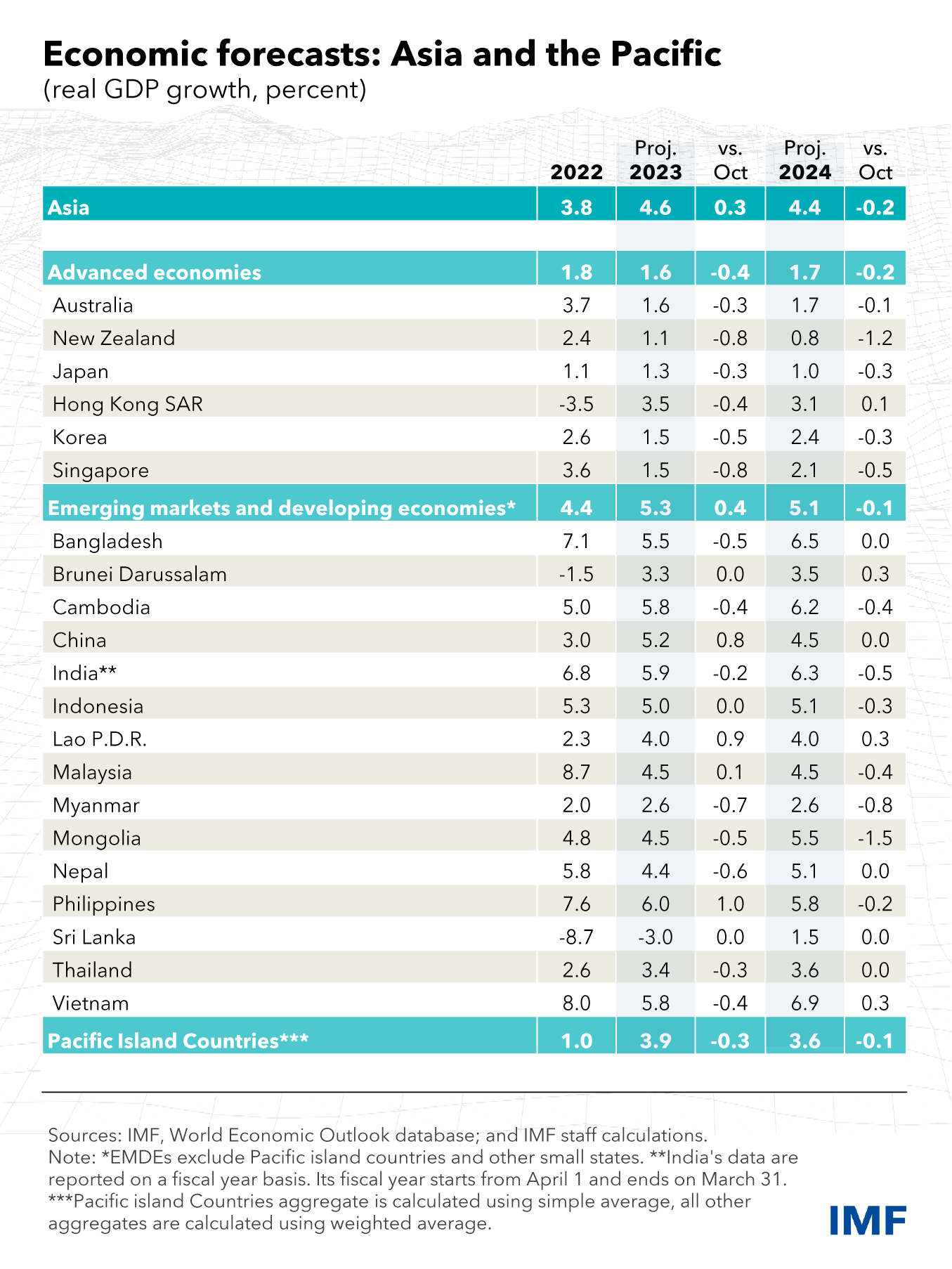"As in the rest of the world, domestic demand is expected to remain the largest growth driver across Asia in 2023."
Asia's economy is expected to expand 4.6% this year after a 3.8% increase in 2022, contributing around 70% of global growth, the IMF said, upgrading its forecast by 0.3 of a percentage point from October.1 hour ago
Despite weakening external demand and monetary tightening, domestic demand has so far remained strong, with China’s reopening providing fresh impetus.

Asia and the Pacific remains a dynamic region despite the somber backdrop of what looks to be shaping up as a challenging year for the world economy.
Global growth is poised to decelerate as rising interest rates and Russia’s war in Ukraine weigh on activity. Inflation remains stubbornly high, and banking strains in the United States and Europe have injected greater uncertainty into an already complex economic landscape.
Asia’s domestic demand has so far remained strong despite monetary tightening, while external appetite for technology products and other exports is weakening. We project the region will contribute around 70 percent of global growth this year as its expansion accelerates to 4.6 percent from 3.8 percent in last year.
China’s reopening will provide fresh momentum. Normally the strongest effect would be from demand for investment goods in China, but this time the biggest effect is from demand for consumption. Other emerging economies in the region are on track to enjoy solid growth, though in some cases at slightly lower rates than seen last year. . .
"The International Monetary Fund (IMF) on Tuesday projected the Asia-Pacific region's economy to grow by 4.6 percent in 2023, from a 3.8-percent increase last year, according to its latest regional economic outlook report.
The region will contribute around 70 percent of global growth this year, with China's reopening providing fresh momentum, the report said.
"Asia and the Pacific remains a dynamic region despite the somber backdrop of what looks to be shaping up as a challenging year for the world economy," the IMF wrote in an overview of the report.
The IMF said global growth is poised to decelerate as rising interest rates and geopolitical conflict affect economic activity, while banking strains in the United States and Europe have injected greater uncertainty into the economic landscape.
Meanwhile, it said China's economic recovery and India's economic growth have provided the main impetus for the region's economic vitality. Other emerging economies in the region are growing steadily, though in some cases slightly less than last year.
The IMF warned of risks from persistent inflation, saying that while inflation has eased, it is still above targets in most countries. It also said the spillover effect of the banking crisis in Europe and the United States has been limited so far, but the fragility of the global financial environment remains high.
It also urged central banks in Asia – excluding Japan and China – to keep monetary policy tight to keep inflation in check, which it said could remain stubbornly high due in part to robust domestic demand."
(With input from Reuters)



No comments:
Post a Comment